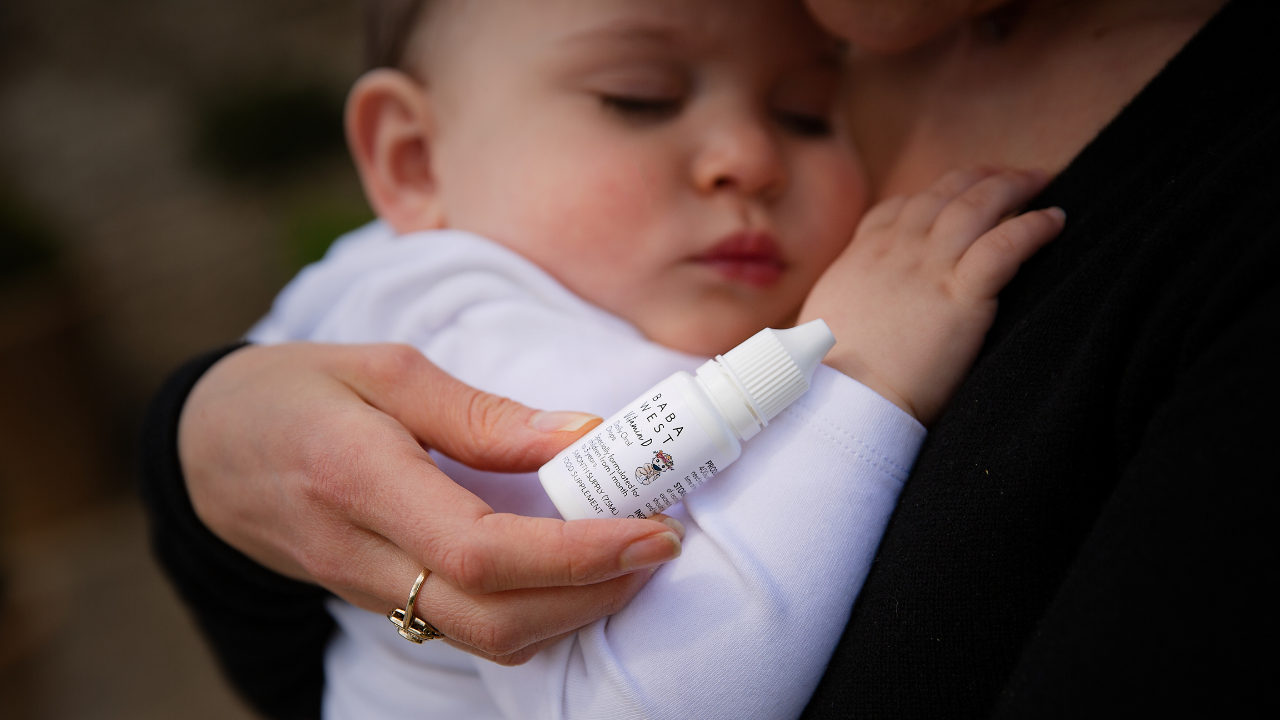Zita West's Baby Clinic: The Importance Of Vitamin D

Our new baby clinic blog where I will be answering your questions on a weekly basis. As it grows I will be taking your questions to experts in the field to get their advice.
The coming weeks will focus on key nutrients and what they can do to help your baby from birth to toddler to child. In the upcoming weeks, I'll be delving into other essential nutrients needed for optimal child development, ensuring that we give our little ones the best start possible during those vital first 1000 days.
Leo and I are often asked about the journey that led us to start Baba West baby and children range of vitamins. Over the past 40 years, I've dedicated myself to understanding the intricacies of ensuring the health and well-being of both mothers and their babies, based on fertility and pregnancy.
It felt like a natural progression to transition from focusing solely on mothers to also considering the needs of babies and children, especially in light of 1000 days from preconception through pregnancy until a child is two and a half.
Research has shown that the first 1000 days are critical for their future health and development. During this time, there are different windows of development for various organs, each requiring specific nutrients at the right amounts and times to optimise growth and development.
As a mother and grandmother myself and Leo with a growing family, understand the desire to provide our children with the best possible start in life. This commitment extends beyond just the ingredients in the supplements; it also involves meticulous research into where these ingredients are sourced and the scientific evidence supporting their effectiveness. After all, we want to ensure that we're giving our families nothing but the best.
Your Little Miss or Mr Sunshine
One of the key nutrients that I focus on is vitamin D. Often referred to as the 'sunshine vitamin,' it plays a vital role in the growth and development of babies. Did you know that a whopping 209 bones in your baby's body require vitamin D for growth, development, and fusion?
Your baby is born with 209 bones, which I think is incredible. However, vitamin D isn't just about bones.
It also plays a crucial role in supporting the respiratory system, immune system, nervous system, and brain development. I've seen first hand how vitamin D deficiency, as seen in cases like in my clinic, can impact both mother and baby, especially if the mother is breastfeeding.
With the pandemic highlighting the necessity of vitamin D supplementation, it's become even more crucial for babies to receive adequate amounts. The science unequivocally supports the importance of vitamin D for overall health and development.
Bone Development
Vitamin D plays a vital role in bone mineralisation and skeletal development in infants. Adequate vitamin D intake ensures proper absorption of calcium and phosphorus, essential minerals for bone growth and strength.
Prevention of Rickets
Vitamin D deficiency in infancy can lead to rickets, a condition characterised by weakened and deformed bones. Vitamin D helps prevent rickets by promoting proper bone formation and mineralisation.
Muscle Function
Vitamin D is essential for muscle function and strength. It supports muscle growth and development in infants, contributing to overall growth and mobility.
Immune System Support
Adequate vitamin D levels in infancy may help support a healthy immune system, reducing the risk of infections and promoting overall growth and development.
Respiratory Health
Emerging research suggests that vitamin D may play a role in respiratory health, potentially reducing the risk of respiratory infections and supporting lung development in infants.
Neurodevelopment
Vitamin D receptors in the brain suggest a role in neurodevelopment. Optimal vitamin D levels may contribute to cognitive development and neurological function in infants.
Signs of Vitamin D Deficiency
Signs of vitamin D deficiency in infants include delayed growth, muscle weakness, irritability, and delayed teething.
In severe cases, it can lead to rickets, a condition characterised by soft and weak bones.
Optimum Dosage of Vitamin D for Infants
The optimum dosage of vitamin D for infants varies based on age. For newborns up to 1 year old, the recommended daily intake is 8.5 to 10 micrograms (µg) per day. For children aged 1 to 2 years old, the recommended intake is 10 µg per day.
It's important to ensure that infants receive an adequate intake of vitamin D and supplements such as infant vitamin D drops are recommended by the NHS.
Overall, ensuring sufficient vitamin D intake is essential for the healthy growth and development of infants.



